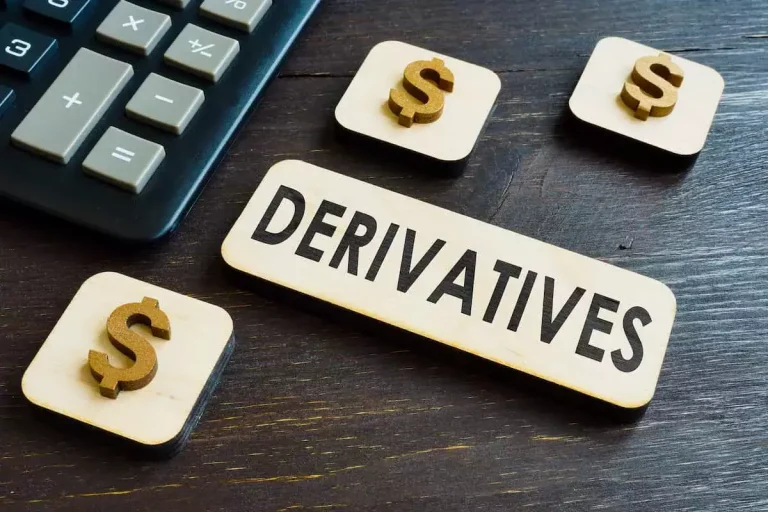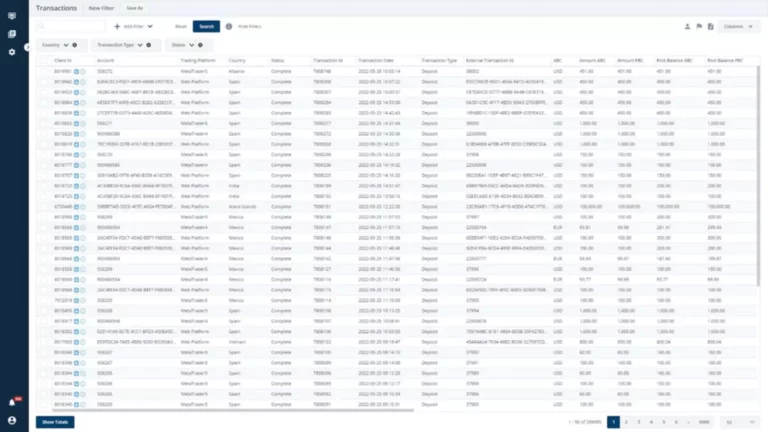Blockchain in Banking: Expert Solutions Guide
Content
Expanding one’s crypto portfolio becomes effortless with Venmo’s credit card, which supplies customers with crypto rewards. Purchases in transportation, grocery, entertainment and other categories can all earn spenders the right to convert cash into crypto. After activating the crypto auto purchase feature, customers can immediately invest their rewards in currencies such as Bitcoin, Litecoin and Ethereum. These organizations are evolving the investment process into a lean, mean blockchain machine. The articles and research support materials available on this site are educational and are not intended Non-fungible token to be investment or tax advice. All such information is provided solely for convenience purposes only and all users thereof should be guided accordingly.
Create a Free Account and Ask Any Financial Question
Key management technology provides an additional layer of security, enabling customers to control access to their data, recover lost e-wallets and perform other blockchain-related tasks. Since blockchain runs on smart contracts, an investment can be fulfilled immediately, rather than waiting a few days, after the blockchain deems that investment valid. The peer-to-peer investment process — in this case an individual investing directly with a company instead of through a broker — speeds up the process and eliminates unnecessary steps. Blockchain’s tightened security encryption protocols severely minimize the risk of a financial data breach. Blockchain subverts institutions in a way that makes today’s current financial industry appear archaic, so it’s no surprise the powers that be in the world of finance are looking https://www.xcritical.com/ for their seat at the table. DLT technology has the potential to expand the global economy to $1.76 trillion by 2030, and this possibility has risen with the popularity of blockchain wallets and cryptocurrencies.

What is Blockchain in a Payment System?
This distributed nature enhances resilience and ensures continuous operation even in the face of disruptions. Concerned about future-proofing blockchain for payments your business, or want to get ahead of the competition? Reach out to us for plentiful insights on digital innovation and developing low-risk solutions. The global blockchain market is experiencing robust growth, with projections suggesting it will reach $469.49 billion by 2030.
Get unified blockchain solutions for your business needs
Blockchain enables direct peer-to-peer payments without the need for traditional financial institutions. Individuals can send and receive payments directly, bypassing intermediaries and reducing transaction fees. This peer-to-peer payment system can empower individuals and businesses, particularly in underserved regions with limited access to traditional banking services. For most people, blockchain and cryptocurrency are almost synonymous with each other. Cryptocurrencies like Bitcoin and Ethereum are often seen as competitors to traditional payments and official currencies.
Integration with existing systems
Besides his extensive derivative trading expertise, Adam is an expert in economics and behavioral finance. Adam received his master’s in economics from The New School for Social Research and his Ph.D. from the University of Wisconsin-Madison in sociology. He currently researches and teaches economic sociology and the social studies of finance at the Hebrew University in Jerusalem. Generative AI is reshaping the due diligence landscape, establishing new data analysis and processing benchmarks.
At LeewayHertz, we developed robust and secure blockchain payment solutions for enterprises and startups. Our team evaluates your project, determines which payment solution you need, and starts the development. Cross-border payments often get bogged down by multiple banks and currency conversions, leading to delays and high fees. Blockchain cuts through this tangle by enabling direct transfers between parties, significantly reducing costs and streamlining the process. The decentralized nature of blockchain can clash with geographically-bound regulations, making compliance a challenge.
New blockchain protocols like Solana and Avalanche are revolutionizing the user experience for crypto payments. These faster blockchains offer significant improvements in transaction speed and reduced fees compared to traditional options like Bitcoin. Additionally, Layer 2 scaling solutions, like the Lightning Network for Bitcoin, are being developed to address scalability limitations that currently hinder widespread adoption.
However, while the advantages are compelling, the adoption of blockchain comes with its own set of challenges. Of the most recent innovations to blockchain payment technology, developments to the speed of transactions appear to be very much at the forefront of the conversation. Blockchain payment systems range from free, open source platforms to those that charge transaction fees starting at .0001 % and go up to 1.0 % of the transaction amount. The fees are significantly lower than those charged by traditional financial institutions and credit card processors. This article will cover blockchain payment solutions in 2024, but rest assured if you’re unsure about how it works, the concept is quite simple once you get past the jargon. A blockchain is essentially a distributed database or ledger, rather like a spreadsheet.
- The company’s platform eliminates the need for piles of paperwork while providing a single system for handling the entire real estate transaction process.
- With blockchain, international payments can be as fast as sending an email, saving you time and money.
- Before starting the development process, make sure that you have outlined the functioning principles and mechanisms of your solution.
- Introduced in October 2022, Binance Oracle combines high-speed data delivery with enhanced security measures.
- Importantly, by employing decentralized identity solutions, blockchain also preserves donor anonymity, fostering increased donations.
- He is currently working on his second startup (currently in stealth mode) that will track and interpret the use of contactless payments in the Greater China region.
Blockchain payment systems offer increased security, transparency, reduced costs, faster settlements, and global accessibility for cross-border payments. Blockchain payment systems use consensus algorithms to verify transactions and store them on a decentralized ledger, ensuring transparency and security. Businesses integrate blockchain in payment solutions to add an extra layer of security to transaction execution.

Loyyal helps businesses expand their customer loyalty programs with a Blockchain-as-a-Service platform. So far, the company has implemented blockchain rewards programs in the travel, employee incentives and credit card industries. Since its development, Loyyal’s blockchain programs have yielded 31 percent annual growth in customer program enrollment. Blockchain technology has the capability to transform the stock market by cutting down complicated and time-consuming processes, high costs and security risks.
This tech acts as a single-layer, source-of-truth that’s designed to track every transaction ever made by its users. This immutability protects against fraud in banking, leading to faster settlement times, and provides a built-in monitor for money laundering. Banks also benefit from faster cross-border transactions at reduced costs and high-security data encryption. For many, blockchain has become a preferable way to handle money, largely due to its efficiency.
Blockchain enables the tokenization of assets such as real estate, commodities, and bonds, breaking them into smaller, tradable units. This creates opportunities for fractional ownership, allowing retail investors to participate in previously inaccessible markets. For example, tokenizing a high-value property enables multiple investors to own a share, unlocking new avenues for portfolio diversification and liquidity. Blockchain’s decentralized and immutable ledger ensures enhanced security and minimizes fraud risks.
Once assets are tokenized, investors only need a trading app to execute borderless international trading. Similar to blockchain applications in supply chain management, the technology can track the records and credentials of medical professionals to streamline hiring processes. Trusted medical records with staff credentials are accessible to other healthcare organizations as needed. Block aims to facilitate economic empowerment for consumers and businesses around the world through its family of fintech brands. For most companies, current loyalty programs are hard to keep data on, are outdated and are at severe risk of data breaches.

Leave a Reply